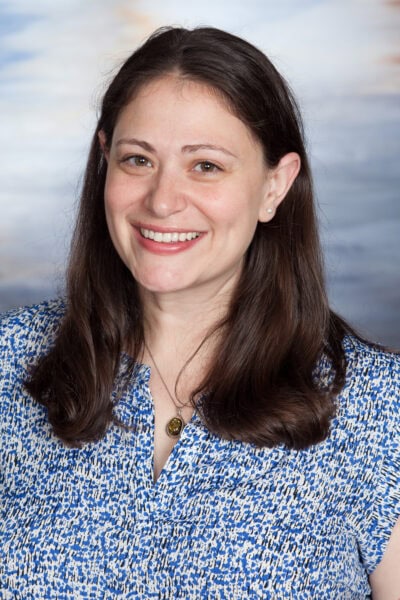Rachel Rothstein is a teacher and dean of social studies and the director of the Israel Poland Experience at the Weber School. She lives in Atlanta, Georgia, and has been a member since 2012.

Rachel Rothstein
Twitter: @rachroth1229
Alma mater/s: BA (political science), BA (sociology), University of Georgia, 2004; MA (Jewish studies), Washington University in St. Louis, 2007; PhD (history), University of Florida, 2015
Fields of interest: Jewish, Polish Jewish, Central Europe, American Jewish, Middle East
Describe your career path. What led you to where you are today?
As I was entering my final year of writing my dissertation, the high school I attended was looking for a social studies teacher who could teach Jewish history. I had a phenomenal experience there as a student and had often thought about teaching high school as I was working on the PhD, so I applied and was lucky enough to get the job!
What do you like the most about where you live and work?
My favorite things about working at Weber are the phenomenal students I get to teach and the administration’s openness to new ideas and approaches in and beyond the classroom. Since I started working at Weber I have had the chance to design new courses such as a modern Jewish history course, a course on 1968 in Europe and the US, an Israel history and politics class, and a Jewish American literature course. I am also the director of the senior Israel Poland Experience study abroad program and I had the opportunity to revamp the program to align with our Jewish history curriculum. In addition to fully supporting my work at Weber, the administration also supports and encourages me to continue my research and writing so I have been able to remain active in the academic community, too. I was thrilled to be able to return to Atlanta where most of my family and many of my friends still live. After living in a college town for so long, it was nice to return to a major city!
What projects are you currently working on?
I am currently revising my manuscript, which explores the relationship between Polish and American Jewish communities, as well as their relationship with the Polish and American governments after the Polish state-sponsored anti-Zionist campaign in 1968. I am also focusing on developing new pedagogical techniques and consistently revising my curricula based on new scholarship.
Have your interests evolved since graduation? If so, how?
My interests are constantly evolving as I prepare for my classes and try to connect with my students. I would love to teach a class on Jewish American popular culture in the future.
What’s the most fascinating thing you’ve ever found at the archives or while doing research?
When I first started my dissertation research, I was often told that I would not find much related to my topic because Jewish life in Poland basically ended after 1968. But this was an incorrect assumption. There was so much to explore and it was fascinating to me that so many—including the archivists—assumed that there would be nothing! But one of the best finds was a set of photographs of American Jews protesting against the Polish government in 1968. After reading about these protests, it was cool to actually see the photographs!
What do you value most about the history discipline?
I truly enjoy teaching and watching my students have their “a-ha” moments when they make connections between what we have learned and their own experiences. A project I love doing with my students is a family immigration history project so they can learn what about their own families’ experiences is exceptional and what fits into larger historical patterns. Locating themselves within a historical narrative helps them think about the importance of context.
Why is membership in the AHA important to you?
When I was a graduate student the AHA helped me connect with historians outside of my fields, which I greatly appreciated. Now, the AHA helps me stay connected with the academic community while also supporting me as a high school history teacher and dean.
Do you have a favorite AHA annual meeting anecdote you would like to share?
My first AHA annual meeting was in New York in 2015. I won the Polish American Historical Association’s Graduate Student Research Paper Award that year and the awards ceremony was at the Polish consulate. It was such an honor to receive the award and present a paper that year. I also got a shoutout, along with some friends, on Megan Kate Nelson’s “AHA Street Style” blog post, which was very exciting!
AHA members are involved in all fields of history, with wide-ranging specializations, interests, and areas of employment. To recognize our talented and eclectic membership, Perspectives Daily features a regular AHA Member Spotlight series.
This work is licensed under a Creative Commons Attribution-NonCommercial-NoDerivatives 4.0 International License. Attribution must provide author name, article title, Perspectives on History, date of publication, and a link to this page. This license applies only to the article, not to text or images used here by permission.
